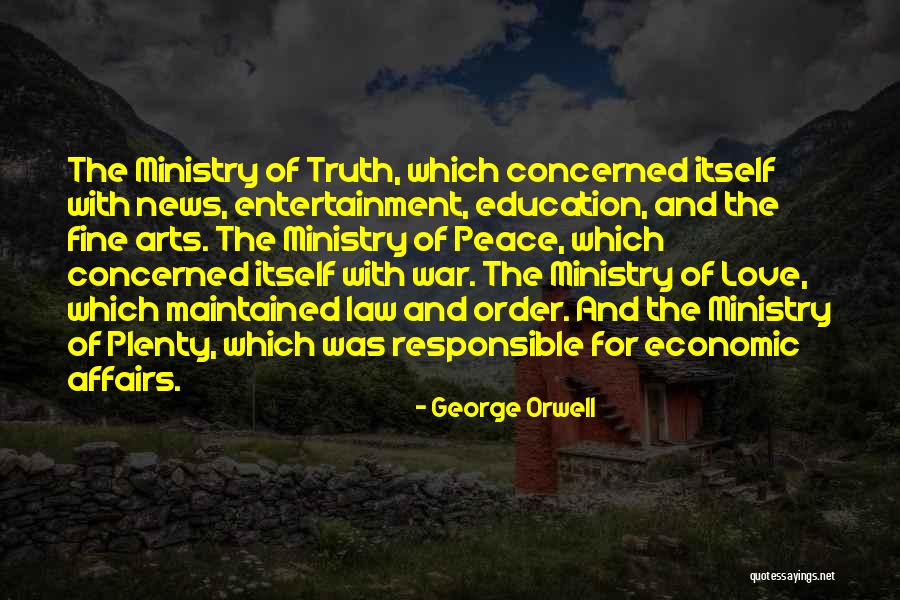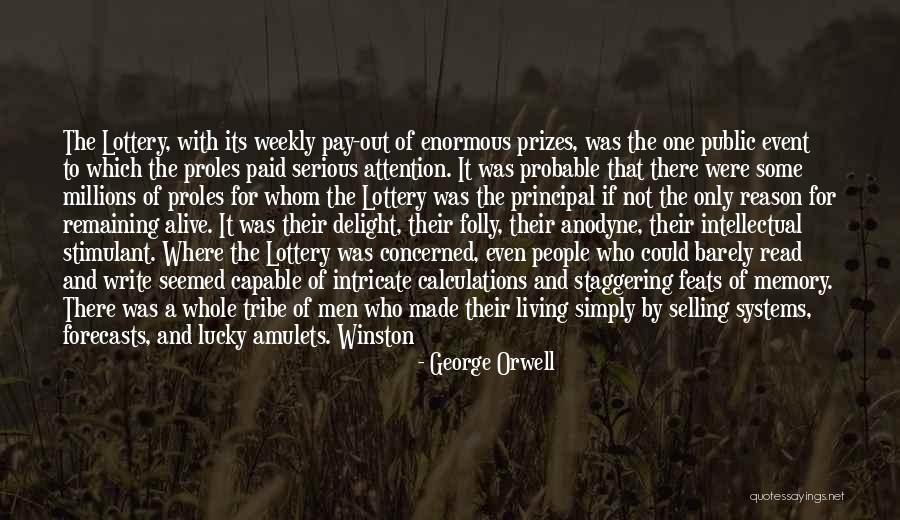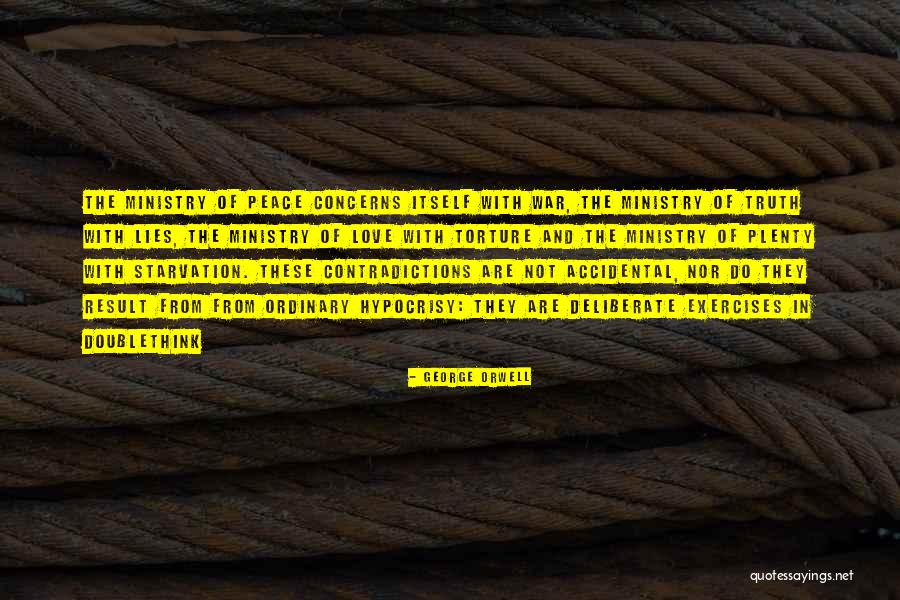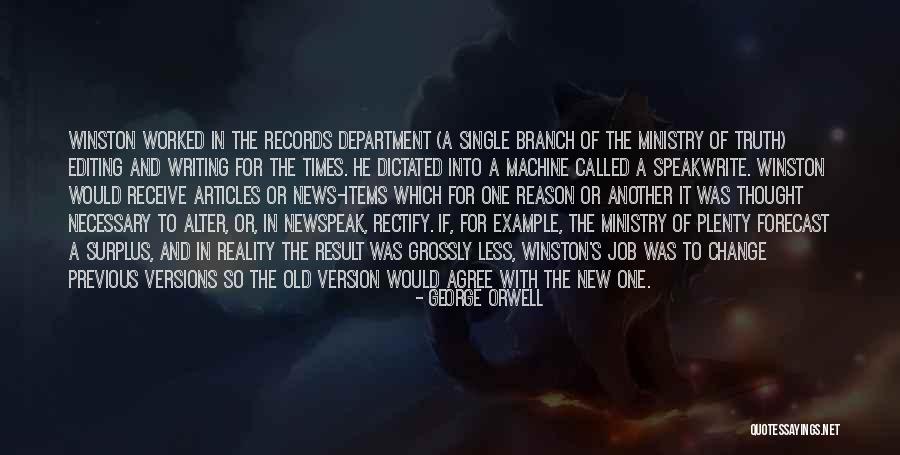Ministry Of Plenty Quotes & Sayings
Enjoy reading and share 4 famous quotes about Ministry Of Plenty with everyone.
Top Ministry Of Plenty Quotes

The Ministry of Truth, which concerned itself with news, entertainment, education, and the fine arts. The Ministry of Peace, which concerned itself with war. The Ministry of Love, which maintained law and order. And the Ministry of Plenty, which was responsible for economic affairs. — George Orwell

The Lottery, with its weekly pay-out of enormous prizes, was the one public event to which the proles paid serious attention. It was probable that there were some millions of proles for whom the Lottery was the principal if not the only reason for remaining alive. It was their delight, their folly, their anodyne, their intellectual stimulant. Where the Lottery was concerned, even people who could barely read and write seemed capable of intricate calculations and staggering feats of memory. There was a whole tribe of men who made their living simply by selling systems, forecasts, and lucky amulets. Winston had nothing to do with the Lottery, which was managed by the Ministry of Plenty, but he was aware (indeed everyone in the party was aware) that the prizes were largely imaginary. Only small sums were actually paid out, the winners of the big prizes being nonexistent persons. — George Orwell

The Ministry of Peace concerns itself with war, the Ministry of Truth with lies, the Ministry of Love with torture and the Ministry of Plenty with starvation. These contradictions are not accidental, nor do they result from from ordinary hypocrisy: they are deliberate exercises in doublethink — George Orwell

Winston worked in the RECORDS DEPARTMENT (a single branch of the Ministry of Truth) editing and writing for The Times. He dictated into a machine called a Speakwrite. Winston would receive articles or news-items which for one reason or another it was thought necessary to alter, or, in Newspeak, rectify. If, for example, the Ministry of Plenty forecast a surplus, and in reality the result was grossly less, Winston's job was to change previous versions so the old version would agree with the new one. — George Orwell





